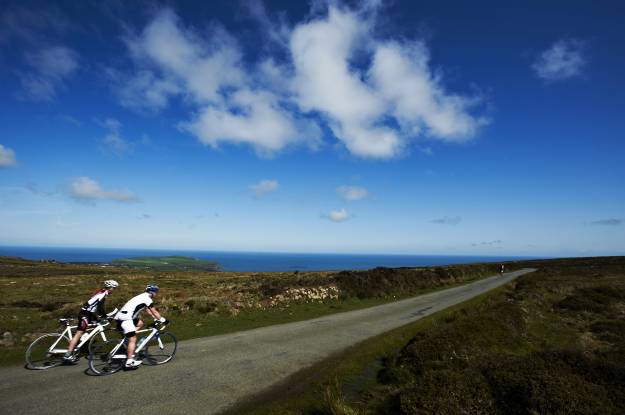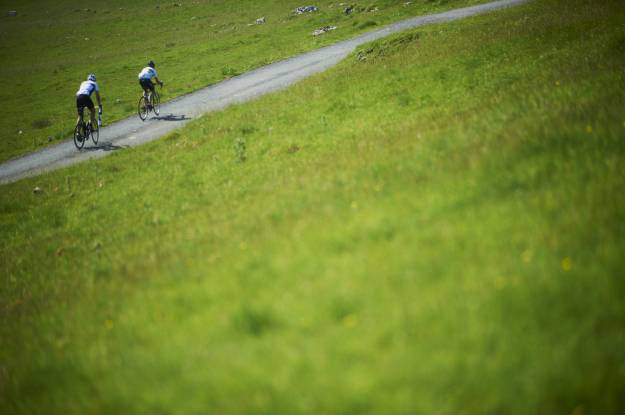A range of cycling and road safety related organisations are supporting this call of action. The CTC, London Cycling Campaign, Sustrans, Ian Austin MP, the road safety charities Brake and Roadpeace, the Parliamentary Advisory Council for Transport Safety and British Cycling’s solicitors Leigh Day and Co have all offered supportive quotes.
Roger Geffen, the CTC’s Campaigns & Policy Director, said:
“CTC has long been concerned about the systemic inadequacies of the way the police, prosecutors and the courts respond to cases of bad driving where cyclists are killed or seriously injured. ‘Sorry Mate I Didn’t See You” is no excuse, and our Stop SMIDSY campaign is calling for an end to the botched investigations or weak charging decisions which so often result in derisory sentences of a few hundred pounds. Specifically we need to ensure that prosecutors stop using “careless” driving charges where the driver caused obvious danger and which therefore ought to lead to “dangerous” convictions. We also want to see much greater use of driving bans as a form of sentencing, not least for public protection from drivers who are prone to dangerous lapses of attention.”
London Cycling Campaign CEO, Ashok Sinha, said:
“Too many families are left feeling betrayed by our justice system that appears to treat a road fatality as less serious than any other avoidable death. There needs to be transparent monitoring of the legal outcomes from every death or life changing injury. There needs to be an open system allowing victims' families the right to examine and challenge all the evidence.”
Ian Austin MP, Co-chair of the All Party Cycling Group, said:
“As a British Cycling member and a regular reader of Cycling Weekly I’m pleased to see them come together to campaign for changes that will make cycling safer. Dangerous driving puts cyclists at risk and needs to be taken much more seriously. I’m tabling Parliamentary Questions and doing all I can in Westminster to push for rigorous investigation of incidents in which dangerous driving puts cyclists at risk and the proper prosecution of the people responsible.”
Malcolm Shepherd, Chief Executive of Sustrans, said:
“We know that many people would like to walk and cycle for their daily journeys, but feel that the roads in our communities are just not safe enough. Everyone should respect other people on our streets, no matter what form of transport they are using. We all deserve to be safe when getting around.
“However, we need to do more to protect the most vulnerable road users, and it’s time our justice system reflected that fact.”
Julie Townsend, Deputy Chief Executive of road safety charity Brake, said:
“We desperately need reform to charges and penalties for driving offences to deter reckless and risky driving and provide justice to families whose lives are turned upside down by drivers with a disregard for safety. We need to treat road crime as serious crime that wrecks lives and is harmful to society, to encourage more responsible road use and make our streets and communities safer places for everyone. In particular, families and children should be able to walk and cycle without fear from dangerous traffic offenders.”
Robert Gifford, Executive Director of the Parliamentary Advisory Council for Transport Safety, said:
“The law has to be seen to be fair. Far too often, in cases involving vulnerable road users, this does not seem to be the case. When a new offence is introduced such as causing death by careless driving, it’s right to review its effectiveness. Now is the time for such a review.”
Amy Aeron-Thomas, Executive Director of RoadPeace, said:
“Our justice system continues to discriminate against road crash victims, especially vulnerable road users. It is not just the drivers that are the problem. The police, CPS, MOJ, courts and even Victim Support do not treat road crime as real crime. We have not been able to get the MOJ to even count the number of people killed and injured by law breaking drivers. To too many in the justice system, road deaths and injuries are collateral damage.
“A review of how the criminal justice system responds to road deaths and serious injuries is long overdue, from investigation through to sentencing. Especially now as we see the effects of spending cuts. Less evidence is being collected and this can only lead to more downgrading of charges. At a time when the government is encouraging people to walk and cycle more, our justice system needs to ensure that drivers who threaten others are detected, punished and kept off our roads.”
Sally Moore, partner at Leigh Day and Co, British Cycling’s personal injury solicitors, said:
“Given the government’s encouragement to get the public back on their bikes for fitness and environmental reasons, they need to back this policy up first and foremost by ensuring that cyclists are safe on the roads. Secondly, when cyclists are killed or injured on the roads the criminal justice system should be robust enough to impose sentences that reflect driving failures and the consequences to the victims and their families.”
Dr. Robert Davis, Chair, Road Danger Reduction Forum said:
"Calling for a change in sentencing and associated practices is by no means a vindictive response to casualties resulting from road collisions. It is essential that those with the potential to endanger their fellow road users - not just cyclists - are aware that inappropriate driving behaviour which can hurt or kill others is unacceptable. Such behaviour should stand a realistic chance of being detected and acted on by all those responsible for law enforcement, with appropriate deterrent sentencing to follow. Achieving this - often by using existing legislation - is necessary to reduce the danger on the road which has led to these collisions occurring in the first place."













